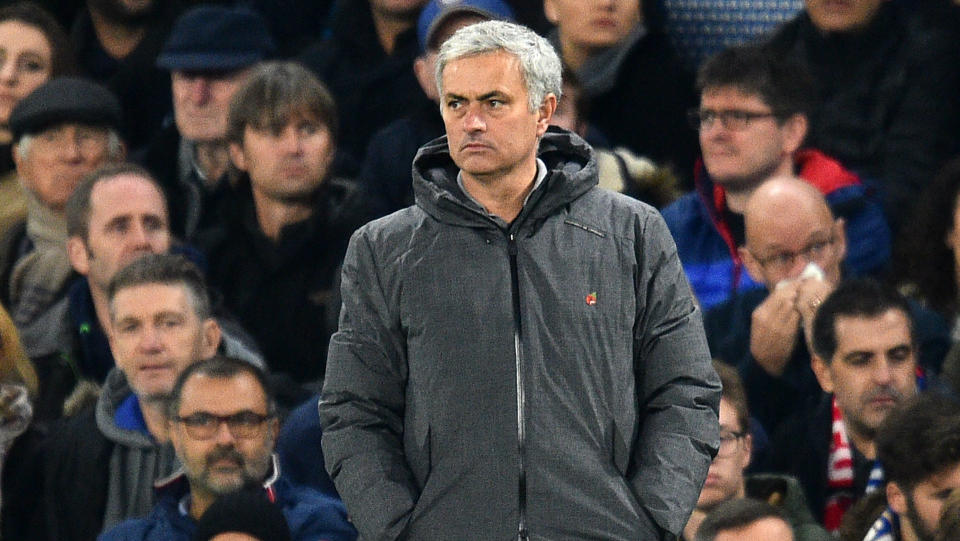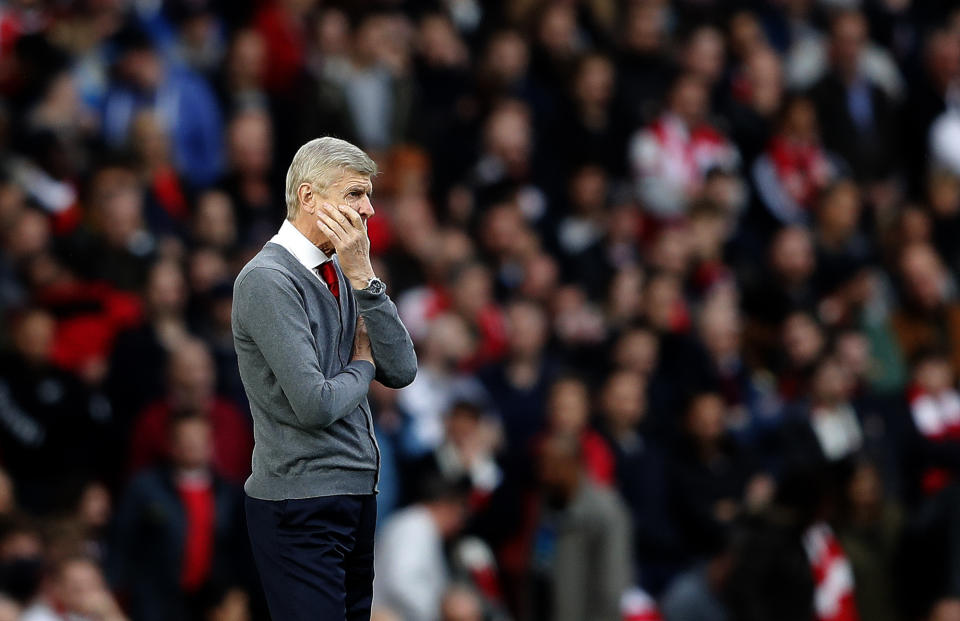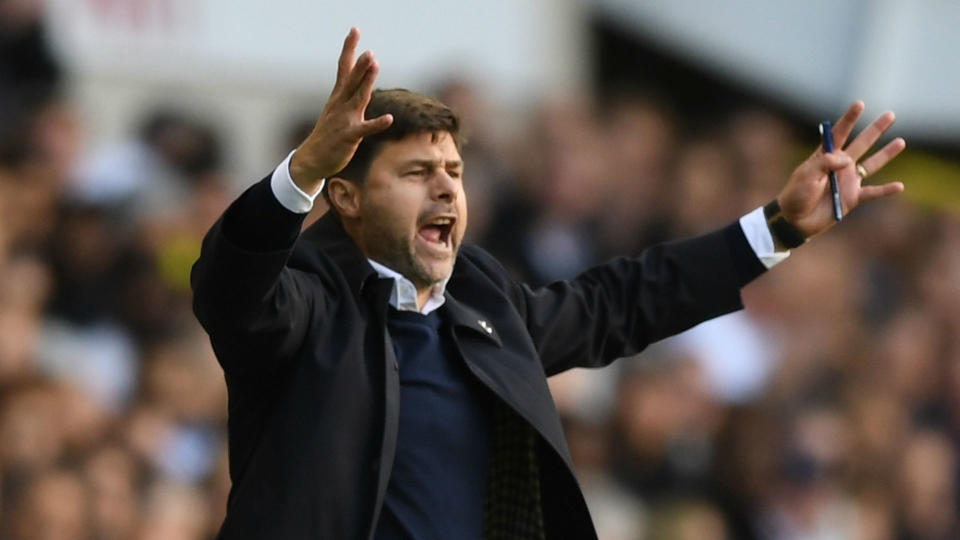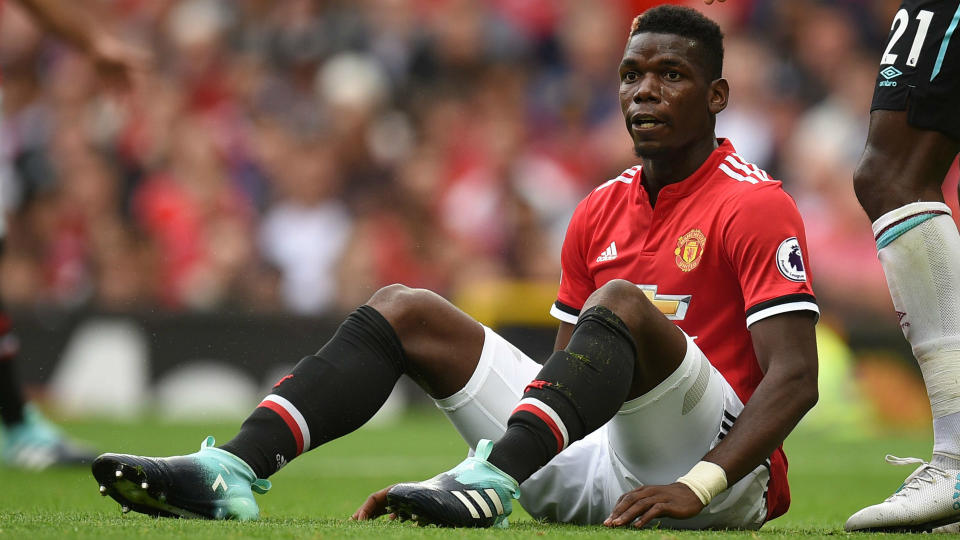Are Mourinho's Manchester United destined never to win the Premier League?

It has become the latest, hardest stick to batter Jose Mourinho around the head with. “Utterly abysmal” is one commentator’s description of the manager’s run of 11 English Premier League away games at “big six” opponents without a single victory.
“Buses everywhere,” wrote another pundit following Sunday’s 1-0 loss at Chelsea, implying that Mourinho had deployed ultra-defensive tactics in every one of a list of matches that tracks back to a 5-3 loss at Tottenham in January 2015. “His way, of late, is not working,” said Sky analyst Jamie Carragher ahead of last month’s goalless draw at Liverpool. “If that doesn’t improve, they won’t win the league.”
The sequence of results – comprised of six away defeats and five scoreless draws – is cited as evidence that Mourinho’s strategic approach will ultimately fail to deliver Manchester United’s first post-Sir Alex Ferguson title. It easily segues into the argument that United supporters will not tolerate defensive football in such high-stakes fixtures because Ferguson’s method was to prioritise attack. Conclusion? Mourinho is doomed to failure at Old Trafford.
READ MORE: Gossip – Mourinho ‘eyes PSG move’, United ‘want Umtiti’, Chelsea ‘target Benteke’
READ MORE: Man Utd’s season in danger of unravelling
READ MORE: Mourinho ‘invited to meet’ Abramovich
As such statistics always are the sequence is cherry-picked. It begins with the only big-six defeat (away or home) suffered by Mourinho’s 2014-15 Chelsea, omitting 1-1 draws at Manchester City and United and a 2-1 victory at Liverpool. The late-April 0-0 at Arsenal came eight days after a 1-0 defeat of Louis van Gaal’s United, allowing Chelsea to lift the Premier League trophy the following weekend – with three fixtures still to play.
The statistic, though, remains ugly. Yet just how ugly is it relative to the competition? If you’re in any way interested in Premier League football you’ll have seen it almost everywhere of late. What you probably have not seen is the context. The context is that taking league points at the stadia of the division’s six most financially powerful clubs isn’t easy. For anyone.
Mourinho’s arrival at Old Trafford coincides neatly with Antonio Conte’s at Chelsea, Pep Guardiola’s at City, and Jurgen Klopp’s first full campaign at Liverpool. Since the beginning of this era of Premier League “super managers” not a single big-six coach has taken more than nine points in total from away trips to their most prominent opponents.
The most impressive record is Klopp’s with nine points gathered from a possible 21, or less than 43 per cent. The German has two victories to show for seven big-six away dates, both (4-3 at Arsenal and 2-1 at Chelsea) were recorded during the first five fixtures of last season, a period in which Klopp’s players tend to be at their fittest due to the unusually high intensity of his pre-season training regime.
Last season, Klopp was the sole “super coach” to go unbeaten in big-six away games, his counter-pressing style proving especially suited to stronger opposition. This campaign
his team has ran less, pressed a lot less aggressively and lost 5-0 at Manchester City (the heaviest defeat of the German’s managerial career) and 4-1 at Tottenham.
READ MORE: Five things we learned from Manchester United’s loss at Stamford Bridge
READ MORE: Mourinho not concerned by eight-point gap to City
What of Conte’s Premier League champions? Characterised by Mourinho as a “super defensive team with a killer counter-attack”, Chelsea usually set up with five defenders across the width of the penalty area when without the ball, stationed two holding midfielders in front of that defensive wall and withdrew their wingers back to patrol the flanks.
From there they reclaimed possession and launched coruscating counters in patterns Conte drilled repeatedly on the training ground. Chelsea’s title was secured with two games left to play and all big-six fixtures completed, yet even with a system seemingly so attuned to succeeding in key away fixtures the champions took just four points from 15, with Guardiola’s City the Italian’s only big-six victim.
This campaign’s 2-1 win at Tottenham has elevated Conte’s away point haul to 39 per cent, a return identical to Guardiola’s. To date the Catalan has won at Old Trafford and Stamford Bridge, lost at White Hart Lane and Anfield, drawn at Arsenal. That City’s cumulative goal difference of minus two is the best of the six contenders underlines the fundamental difficulty of succeeding in such matches

Though Mauricio Pochettino ran eventual champions Chelsea and Leicester City closest for most of the last two seasons, the Argentine has just one big-six away win to show for his 16 attempts at Tottenham. In the “super manager” era Pochettino has two points from 18, a mere 1.5 percentage points better than Mourinho’s United.
Following Sunday’s 3-1 loss at City, Arsene Wenger’s record is poorer still – two points from eight big-six visits. Five goals scored against 19 conceded leave the Frenchman with the worst goal difference by a margin of six.
Another way to assess the intrinsic difficulty of securing big-six away wins is to examine the record of the past 10 Premier League champions. Remarkably, just two of those 10 – Ferguson’s runaway 2012/13 winners and Carlo Ancelotti’s 2009/10 Chelsea – secures more points from such fixtures than they lost. Cumulatively, the Premier League last 10 champions have taken 64 points from 153 at big-six grounds, or 42 per cent.
The supposedly swashbuckling Ferguson masterminded four of those titles. The last produced an outstanding 11 big-six away points from 15, making his final United team unique amongst the last 10 champions in remaining unbeaten in such fixtures. It also contrasts markedly with his return of two, five and five points in 2010/11, 2008/09 and 2007/08.
As one of Ferguson’s best defenders argued in a recent column for The Sunday Times, there is something of a halo effect when many observers recall the Scot’s methods. “I actually believe that it’s a bit of a myth that United always play entertaining football,” wrote Rio Ferdinand last weekend. “I played in United teams that entertained, and in other United teams that fought out nitty-gritty 1-0 victories.
“In 2010-11 when we won the title and reached the Champions League final we had 11 league draws and six nil-nils in all competitions. We had plenty of games where we didn’t play particularly well but we dug in, made it ugly and won the battle. It wasn’t always pretty. It wasn’t always swashbuckling football.”

If Mourinho’s own record at United begins to look less than “utterly abysmal” in that light there are two further elements of context that need to be added to the analysis. Yet both rarely seem to warrant mention when the 11-away-games-no-wins statistic is trotted out.
The last three big-six visits of Mourinho’s first United campaign were all played in the final month of a campaign in which the Portuguese took the pragmatic decision to concentrate strained playing resources on securing automatic qualification for the Champions League by winning the Europa League. Trips to City, Arsenal and Tottenham were navigated without his most important midfielder, Paul Pogba, and leading goalscorer Zlatan Ibrahimovic.
Like the Swedish centre forward, trusted defenders Marcos Rojo and Ashley Young were also sidelined with season-ending injuries. In defeats to Arsenal and Tottenham, Mourinho started the teenage academy graduate Axel Tuanzebe.
“With the accumulation of matches and then with the two-leg semi-final of the Capital Cup, plus the final, plus matches in hand, we were in a situation where I saw quarter-finals and possible semi-finals in the middle of Tottenham away, Arsenal away, Chelsea at home,” said Mourinho.
“In the last five matches of the season we had four matches away, City away, Southampton away, Tottenham away, Arsenal away. Five matches, four away, something absolutely ridiculous, and the point was: ‘Can we finish top four? Maybe we can, but at the expense of what?’ Very difficult to go for both at the same time, because we don’t have the squad, we don’t have the players, we have lots of injuries. We have to choose.
“I also felt that the club needed to feed – at least emotionally – the fans, the self-esteem of the players, the motivation of the people. And you can’t do that without some success. That’s why I fought hard for trophies. And that’s why I prefer a Europa League victory than a third or fourth spot in the championship. Because I think the best way to accelerate the process is to do the process winning. Because winning gets you smiles, you get better atmosphere, you create better empathy with the people, you can demand more from the people, you can persuade the people to give more.”

This season Mourinho has faced three big-six opponents in the last three weeks, drawing 0-0 at Liverpool, defeating Tottenham 1-0 at Old Trafford, and losing 1-0 at Chelsea. The common denominator in all three fixtures? The enforced absence from the starting line-up of Pogba and Marouane Fellaini. That coupled with Michael Carrick’s injury and a club decision to loan Andreas Pereira to Valencia has left Mourinho repeatedly fielding a midfield duo of Nemanja Matic and Ander Herrera, while devising tactics to try and cover for strained resources in the centre of the park.
“We went through a very difficult phase with probably the most important matches against Tottenham, Liverpool, Chelsea,” said Mourinho following Sunday’s loss. “We went through all this phase without important players. I don’t like to speak, and it’s not after a defeat that I’m going to speak, but it’s obvious that we went through a difficult period with limitations.”
Obvious, yet rarely mentioned by those critiquing Manchester United’s manager. Pogba is expected back from his hamstring tear after the current international break. Is Mourinho fundamentally incapable of taking points from key Premier League games away from home? Other records suggest otherwise.
In 2014/15 his Chelsea team won the title with one win, three draws and that Tottenham defeat at big-six grounds. They went unbeaten in the Stamford Bridge returns, amassing 11 points out of 15.
The first of Mourinho’s three Premier League title at Chelsea included 10 points out of 15 on big-six away trips. And in 2005/06 his team had won at Tottenham, Liverpool, Arsenal and City before the Hogmanay fixtures. A cumulative goal difference of seven and an 80 per-cent point take are both the highest achieved by any title winning manager in such fixtures since his first campaign in England. Incapable of winning sufficient points away? It’s probably just a matter of patience and personnel.

 Yahoo Sport
Yahoo Sport 






































